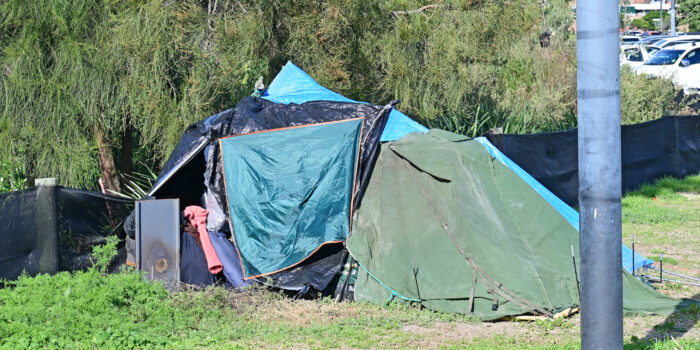In June 2004 Terry and Uta Larsen contracted Grace Removals to ship their household  furniture from Black Mountain in rural New South Wales to their home in Stahringen, Germany. On arrival it appeared that the goods had been vandalised.
furniture from Black Mountain in rural New South Wales to their home in Stahringen, Germany. On arrival it appeared that the goods had been vandalised.
They found two of the boxes had a swastika drawn upon them, some goods inside boxes were disordered and some of the goods had been damaged.
Grace Removals apologised to for the offensive drawings and transit damage, for which an ex gratia payment was offered in 2005, but not accepted.
A “Welsh dresser” among the shipment was stored in a barn for four years whilst the house was being renovated.
When unwrapped in 2006 a “coal tar substance” appeared to have been poured across part of the top and a “grey jelly” like substance brushed on to a lower section.
Fearful for their health, they referred the substances to a toxicologist in 2008.
As a precaution, they demolished part of the home and rebuilt to ensure that the all contaminants from the consignment had been eliminated.
The Larsens sued Grace for damage to the goods in the New South Wales Supreme Court, claiming adverse effects on health and for their rebuild costs.
Expert toxicologists for both sides agreed from analysis of the furniture, air in the house, soil samples and clothing, the only contaminant was the tar-like substance.
Grace contended the most likely source of the foreign substances were building products spilt during the course of the Larsen‘s renovations.
Following a nine day hearing, Justice Monika Schmidt ordered Grace pay the couple amount of $10.5k for the damage to their goods but rejected the adverse health and house demolition cost claims.
She and the appeal judges ruled the Larsens hadn’t proved that the substances were harmful to their health or that they were deposited on the furniture whilst it was in transit as opposed to during the period it was stored in their barn.
Larsen v Grace Worldwide (Aust) Pty Limited (No 2) [2015] NSWSC 1224 Schmidt J, 28 August 2015 Read case





